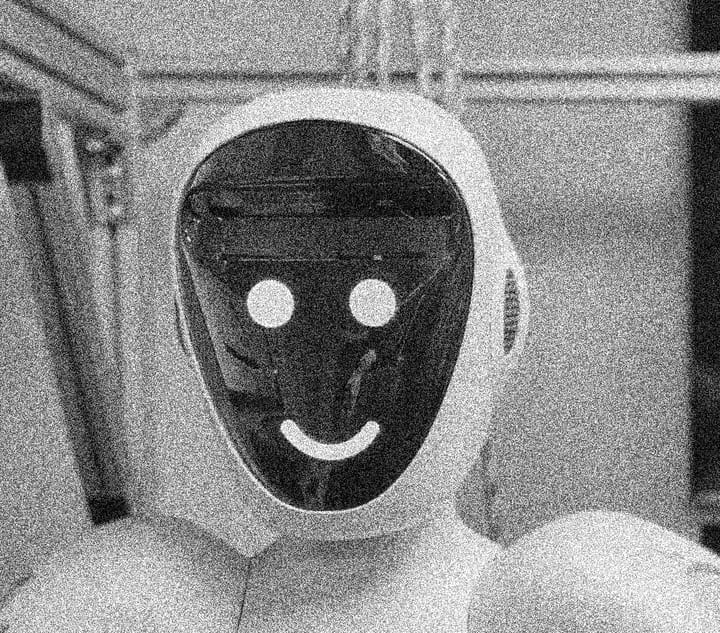Inside the Mind of the Professional-Managerial Class, Part Three
The precarious Professional-Managerial Class attempts to solve political problems through the futile mental gymnastics of identity politics.

In this series (see Parts I and II), our resident Bay-Area psychotherapist takes us to the depths of the professional-managerial class psyche. Consider her the Virgil to your Dante
The following clinical material is fictional, based on composite experience.
Donald Winnicott, a pediatrician and influential child analyst, famously advocated “good enough” parenting: a comfortable, forgiving sweet spot between deficient and perfect. A child raised in a good enough environment learns that their basic needs will be adequately met. Needs—much less wants—will not be met perfectly, nor all of the time, and the parent will meet progressively fewer needs as the child develops greater capacities, but such a child is never left hungry for too long.
The child’s mind, in this context, evolves to do two things: 1) solve solvable problems (use logic, tolerate frustration) and 2) imagine perfection (fantasize, be creative). A healthy mind develops in intimate relation to a healthy body: indeed, in health, according to Winnicott, it is more accurate to speak of a psyche-soma, as mind and body function as a unit, operating together within an environment where its aims, with reasonable effort, can be achieved. A sound mind is an embodied and interpersonal phenomenon: an extension of good enough parenting. Like attentive parents, the mind registers the body’s instincts, fostering passion, signaling need. The body, meantime, grows to trust the mind’s reassurance that its needs will be met.
In the absence of adequate relationships and environment, the mind develops pathologically. It attempts to solve unsolvable problems—problems that ought to be solved or provided for by a good enough environment or caretaker. In health, the developing mind tries to solve problems it can fix. For example, “How do I get that toy off that high counter?” or, “How do I communicate that my diaper needs changing?” In the pathological development Winnicott describes, the developing mind attempts problems outside its scope. For instance, “How do I prevent my parents from fighting constantly?” or, “How do I get my parents to stop drinking and pay attention to me?” or, “How can I change things so we have enough to eat?” The psyche is overwhelmed and alone—the child is “stuck in their head.” Big problems exist, and sufficient help does not.
The overwhelmed psyche attempts to solve these problems by 1) working overtime, 2) attempting to control the environment, the caretakers, and/or the self, and 3) relying only on itself in perverse, pseudo-omnipotent defiance of dependency. It becomes so focused on controlling the environment that connection with sensory experience gets lost. It is in these sorts of situations, where perceived survival needs are pitted against one’s ability to take in new experiences, that “psyche” and “soma” are split—the mind and body become opposed. The mind persuades itself that it is independent of the body: “mental functioning becoming a thing in itself,” Winnicott describes, “practically replacing the good mother and making her unnecessary”. The mind attempts to compensate for a deficient environment by ignoring the body and its needs. The mind becomes rigidly controlling, imagining it can solve environmental problems through thinking alone. The basic premise is that if the mind thinks hard enough and manages the body well enough, it can compensate for inadequate relationships and an overall lack of care.
This solution keeps the psyche from confronting environmental failure, which would be both painful and terrifying, but disconnects the mind not only from the body but from the environment as such. It produces a mind and self-conception unmoored from reality. In lieu of responsive, attuned communication between parent-child and psyche-soma, a mind-object endeavors to care for (control) a fabricated body through rules and regulations that make little somatic sense. The body and its natural rhythms, needs, and impulses are ignored or overridden, while the mind grows anxious and overburdened. The mind becomes a terrified tyrant, the body a mute, traumatized joyless servant. The mind, exhausted, turns to binging media, extreme exercise, heavy drinking—anything it can come up with to get away from itself. The body loses vitality; sensual pleasures languish, dis-ease grows.
Eating disorders exemplify this phenomenon, from anorexia and rigid dietary and exercise regimens to bulimia and compulsive overeating. The tyrannical mind ignores the body’s signals, subjecting the body to its rigid ideology and insatiable desires. Rules proliferate: no eating after 6pm, no breakfast, no sugar, no carbohydrates, no alcohol, green smoothies, high-protein meal replacements, intense exercise regimens, cleanses, and so on. These rules often make scant sense, yet are clung to with dogmatic certainty—symptoms of a mental universe immune to physical logic. To a patient convinced that eating after 6 will make her fat, for example, I comment that casual observation proves it cannot be true that evening meals cause obesity, but she shakes her head. She tells me that she is in bed by 10, that it takes her body at least 4 hours to digest a meal, and that she needs to digest her last meal fully before going to sleep. Full stop. I have another patient, obsessed with food and exercise for decades, who is now sustaining multiple painful injuries. I wonder what it would be like for him to take a break from working out. He visibly stiffens: “Yeah, that’s not gonna happen.”
Often, the body, enslaved and depleted, rebels. Injuries provide one example. Binge eating and/or drinking is common, or starvation throughout the day and overeating nightly. Shame rushes in and the cycle of punitive, exhausting un-care resumes. The mind has failed to properly control the body, and it’s terrifying. Even when they do achieve the narrow goal of what their body should look and feel like, this fails to provide relief, because contamination constantly threatens. Relaxation might prove deadly: one cupcake might spell 50 irrevocable pounds; one missed workout, moral failure. The concept of eating when hungry until full proves baffling and scary.
What explains this paranoid inner world where torturous rigidity is clung to as the lone hope for salvation? In Winnicottian terms, the environment cannot be trusted. As Barbara Ehrenreich argues, the professional-managerial-classes are ever-more “afraid of falling,” and are painfully aware, even if subconsciously, that the fall is growing longer. The mind desperately attempts to provide an adequate substitute for environmental care—but of course cannot—and both mind and body continue to suffer. The mind registers this distress, but instead of responding empathically, cries: “Manage harder!” Unable to depend on the environment, including food and basic bodily functions, the mind doubles down on a futile solution. Severed from the dangerous soma, the psyche works overtime on its tyrannical treadmill.
In my clinical practice with successful white-collar millennials in the Bay Area, Winnicott’s elucidation of environmental failure and the formation of a pathological mind-object keeps coming to mind. My patients feel sincerely upset by recent events and want to do their part to make things better. I’ve quite possibly had more conversations with patients about racism, class, and politics in the past year than the past decade.
I count this as a win. And yet, like my patients with eating disorders, their language rings irrational, rigid, and righteous—and perpetuates persecutory anxiety. The perennial struggle for social justice has been magically transformed into a preposterous purity test. Patients sever contact with less woke family members, and quake with shame at the association. They wear masks at all times, even outside, at ample distance, scientific evidence be damned, and arm themselves with compulsory recommended reading. My reaction is much the same as that described above: I feel sucked into a psychotic universe imbued with existential urgency. Contemporary hegemonic wokeness is far too punishing to sustain, but doggedly maintained notwithstanding. The Freudian superego is on full display: terrified of punishment, and therefore punitive and shaming.
The particular rigid, manic, tyrannical, disembodied self-management Winnicott describes is of course only one response to environmental failure—or rather, a response to one specific genre of environmental failure. Psychotherapists quip, with Tolstoy, that all happy families are happy in the same way, but misery proliferates with endless variation. For example, less extreme environmental failure than that depicted here might produce mundane neurosis or attachment difficulties. More extreme and disturbing environmental failure, on the other hand, often yields psychosis, or various forms of self-annihilation: addiction, somatization, crippling depression—pathologies frequently encountered in the working class. The pathological mind-object under discussion here develops in response to parenting that is both patently not good enough and not extremely terrible, either. Often such parenting appears obviously inadequate to the therapist, but confusingly mixed to the patient.
“I mean, it wasn’t like they beat me.” Or, “I think they really believed in tough love.” Or, “At least they taught me to be self-reliant!”
The contemporary PMC faces precisely this sort of environmental mother: in the economic milieu, they receive no genuine relational holding, no assistance should they misstep, but do sustain the seductive illusion that if they manage just hard enough, the good is available. Absent a related, containing social order, the PMC attempts to succeed through obsessive, dogmatic rules and regulations—to solve structural, work-place problems through omnipotent mental gymnastics. The mind of the PMC has become a thing in itself, screaming across cyber space, perpetuating fanatical rules that are always changing.
Like a stubborn anorexic, the PMC is dimly aware that their deadly strategy has never really worked, yet they cannot relinquish it, because it’s the only thing they’ve got. They’ve become reliant on a tyrant wildly out of touch with reality, but powerful nonetheless. The Faustian sacrifice of relatedness and care for the chance at malignant pseudo-success never affords relief. No amount of diversity trainings and mandates, hirings and firings, and so on amount to a sane, caring society, nor to security in one’s own class position. Indeed, identity politics may be less about lifting up the downtrodden than about pathologizing them: an anxious affirmation of one’s superiority in a world that feels overwhelmingly dangerous and disorienting.
Meanwhile, confronting environmental failure and doing something about it—reconnecting mind and body—appears too difficult and terrifying to attempt. The only choice left is to manage harder. Like the miserable anorexic smugly satisfied with being thin, the only hope is to win by losing.
■
Lizzie Warren, PsyD, meanwhile, remains in SF, locking herself in to lose herself in Facebook.



